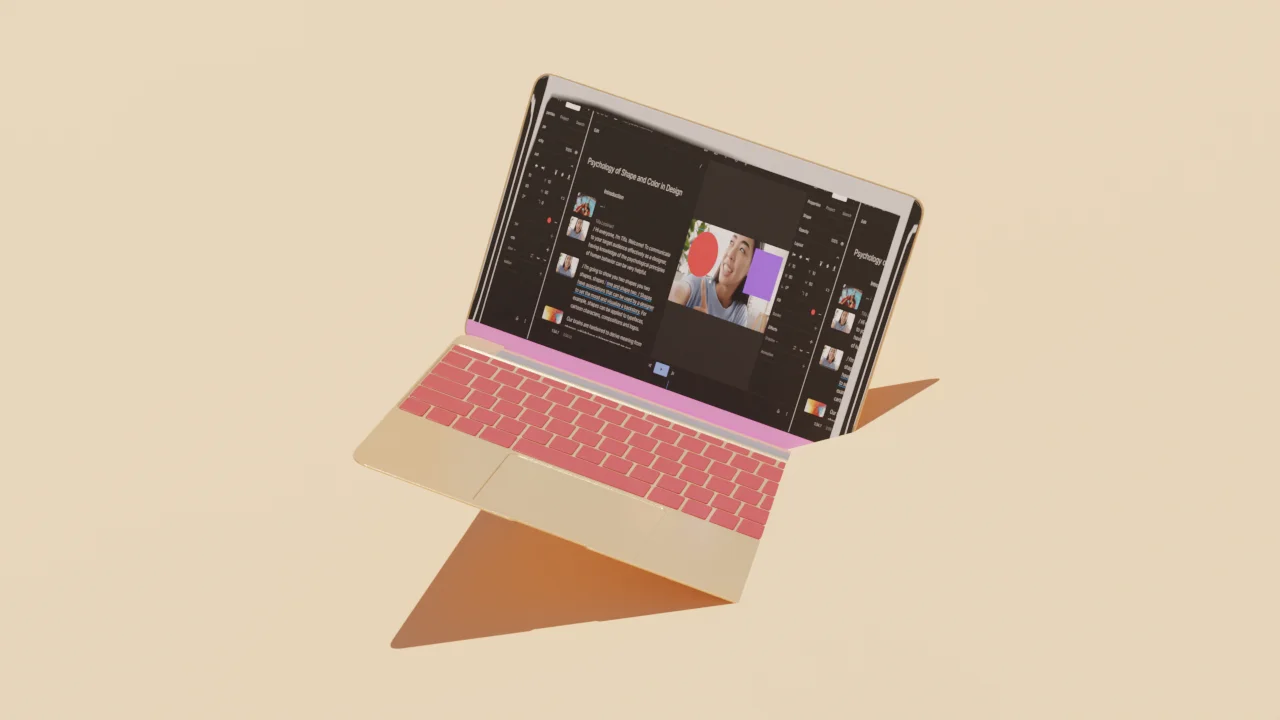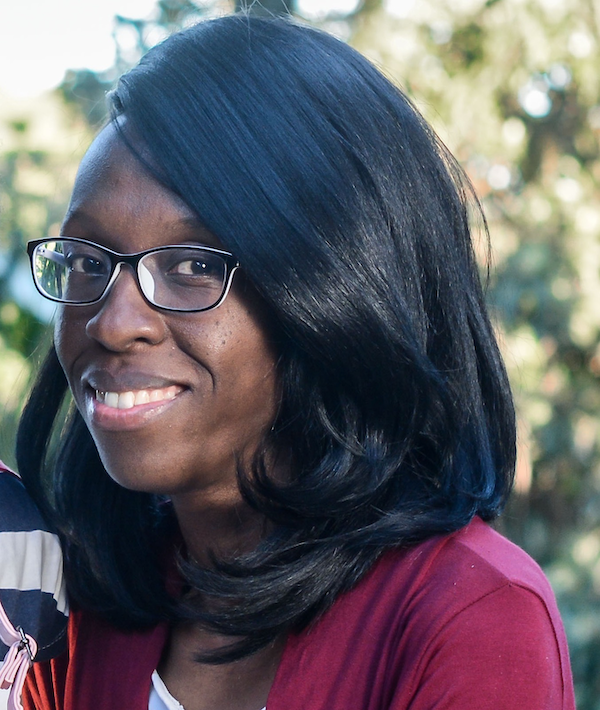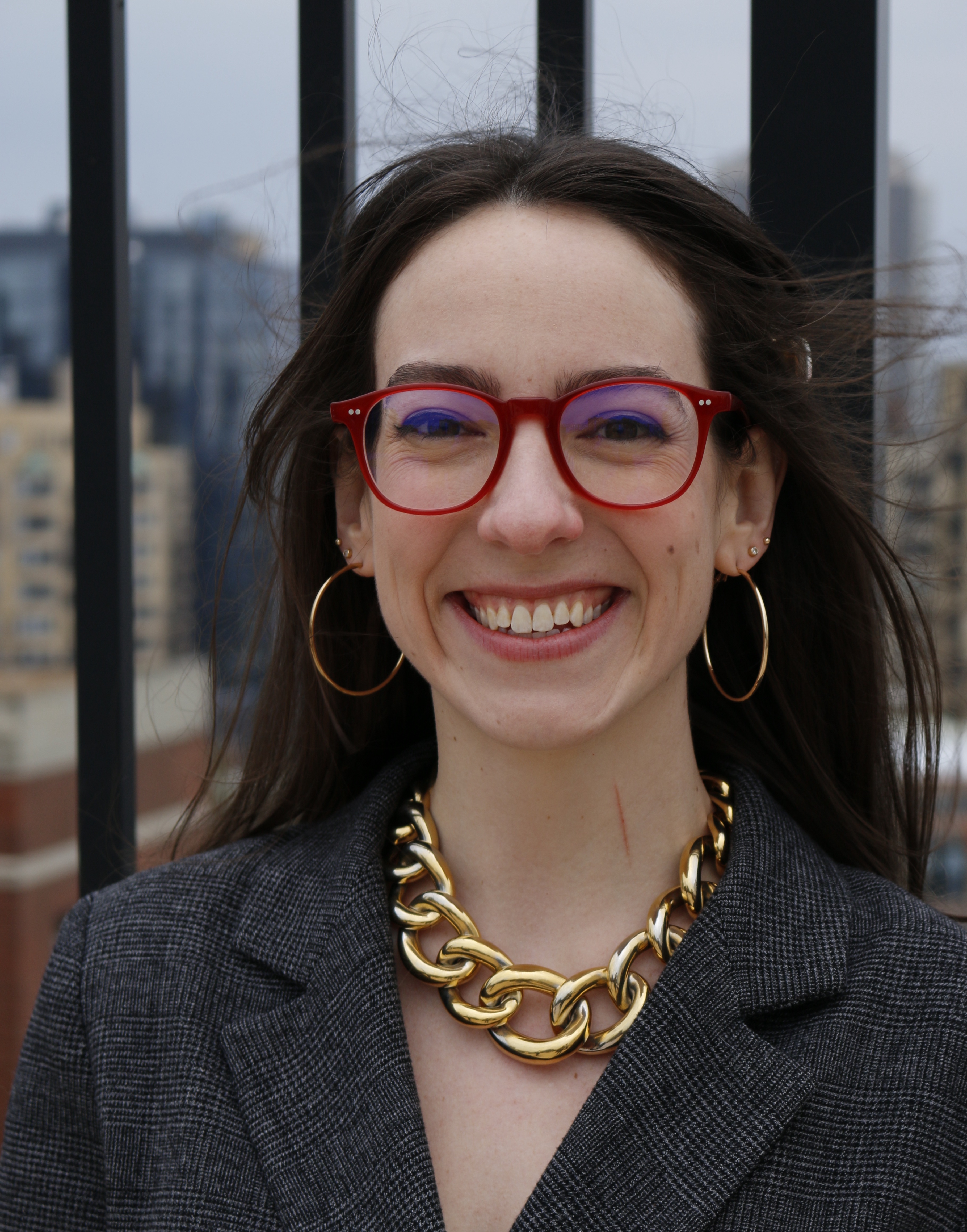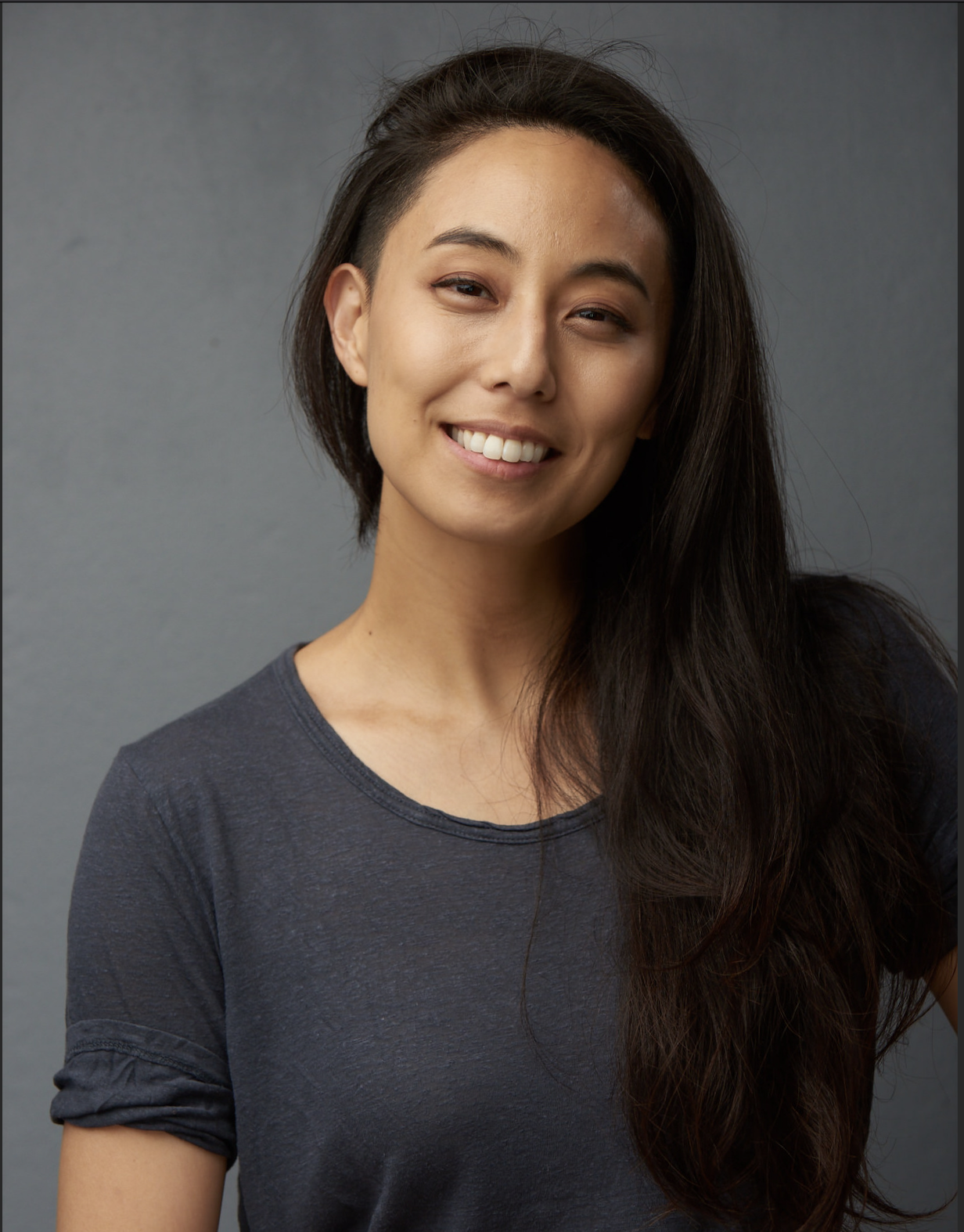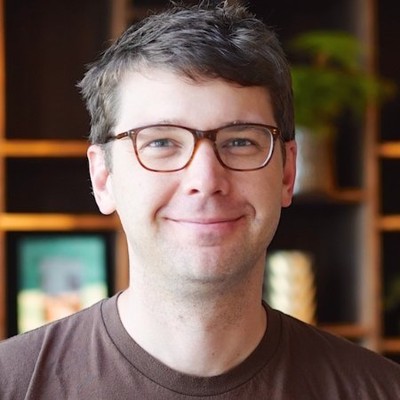How They Made It is an interview series that focuses on indie creators, exploring how they got their start and how their shows and practices have evolved since then. We hope you find inspiration in them for your own creative projects.
If there’s an indie creator who’s hit it big that you think we should feature, send an email to ashley@descript.com.
When Mark Pagán first dreamed up the concept for the podcast Other Men Need Help, he described it as “Sesame Street about men.”
“My first job out of college was at Sesame Street,” he explains now. But also, “We wanted something super playful and cheeky. And I wanted to apply some fun lessons to the circus of gender.”
Other Men Need Help debuted in 2017; in its four seasons, it has covered “the emblems, habits, and struts in the male performance.” It’s also been recognized by Vulture, IFP, and the Latin Podcast Awards, among other honors. We got on Zoom to talk to Mark about learning how to watch an audience, balancing a day job with a passion project, and making the thing you want to make, even if it doesn’t make any money.
This conversation has been edited and condensed for length and clarity.

You had done a bunch of creative work before you started making Other Men Need Help. How did those projects help you develop the skills you needed to podcast?
Well, I'd say I was a so-so DJ, but I'm a great engineer because of it. In high school, my parents put some money together to buy me equipment. My mom and dad let that be my thing. And then at home I would try to beat-match and make mixtapes. At best, they're fine. But those are skills of building rhythm.
What has been really interesting about that is watching an audience, blending and doing something for a crowd. You immediately get that reaction. I worked in comedy for years. I directed theater. I think those skills, without ever having touched Pro Tools or Audition, are invaluable. If you wait a beat too long, you're going to lose the audience.
I worked in film and video and television for years. A lot of that was editing—from Final Cut Pro to Avid to Premiere. By the time I touched audio editing, it wasn't 100 percent organic, but it wasn't too damn far off. Now 95 percent of what I do is in Pro Tools—other than Descript, which I use for transcription and doing my early drafting.
In terms of gear, I had a documentary shoot that I was supposed to do in 2011 or something like that. I brought all this [video equipment], and the crew did not show up. I was interviewing this couple, and the husband was super suspect about me to begin with. It's like, “I don't want this dude in our house. I don't want to talk about our relationship.” I had just bought this Zoom recorder. I thought, what if I just throw everything out the window and turn this into audio?
What was fascinating to me was to see his switch: how quickly he moved over to a level of trust when the mechanics of production dissipated.
I did hear about Studs Terkel—I heard this technique. He would do this thing where he would have the people participate [in setting up his recorder]. Like, “Hey, can you take a look? Am I doing this right?” This is a level of: I am totally going to remove the curtain here. This is nothing fancy.
I’ve talked to some peers about that. A few people have said, “Well, you're supposed to show up as a professional.” I'm like, Yeah, but also, it's psychological. People get f*cking freaked out. And it’s an invitation.
I love that. I feel like it’s all about responding to the person in the moment, as opposed to having one rigid way that you behave. What was your tech setup like in the early days of Other Men, and how has it evolved over time?
For me, it's been the techniques, versus the equipment. If you look at September 2017 and September 2023, it's pretty much the same stuff. I started with an H4N Zoom recorder, a shotgun mic. I was editing on Hindenburg. Sony headphones.
Now it's all home recording. It's really not fancy. It's pillows. It’s really the techniques: manipulating the environment to make it sound as good as I can. Recording as much ambience as possible, and room tone, especially if it's varying.

You have a pretty substantial team working with you now. When did you start assembling them? What was it like to start staffing up, and thinking about how to pay people?
I started solo, and continued solo basically all the way until the first week of the show. I knew Rebecca Seidel very casually, and I saw her at an event where she was volunteering. It was a storytelling event. I said, “You're working in audio, right?” She said, “Yeah, I am.” And I said, “Okay, well, I have a show that I'm creating, and I could use some help. I don't know what that means right now. I can't offer you anything. Are you interested in taking this experiment?” She said, “Yeah.”
She had a friend named Ben [Goldberg, producer]. He really wants to do cool stuff. Then Tamvir Mansoor [associate producer], who was this whole coincidental thing, and moved to New York just so he could intern on a podcast.
And then after the first season, it was like, all right, how do we keep this going? We created a Patreon. We looked into sponsorships. We had live events, which brought in a little bit of money.
To be completely honest, all those still do not bring in that much money. Other Men Need Help has been a self-funded project. Each season, it is a conversation. We're going into the season without much money. This is what's coming in. Do you guys want to participate? Everybody's a working professional, so I try to keep it as fair as possible. It’s been going for six years and honestly, it's a really tough show to maintain.
It’s a challenging format. It's researched, it's reported. We spend a long time on stories, both in terms of structuring them, as well as, like, two years of interviewing to try to get to a 25-minute episode. We would probably be better funded and have a bigger audience if we weren't doing this format. But that's not the show that I want to make.

How did you start building an audience?
The majority of our production team is in New York City. Live events allowed us to actually physically see who was coming in and who was reacting to the show. We were able to make some associations with who our listener base might be, and then try to create seasons and episodes that would speak to who that listener is.
We created a survey that we put in our show notes, which brought in a number of responses. And there was an option in that survey, if they were open to a follow up interview. We selected four people, I believe, and of those four people, we wanted to create one or two audience profiles: This is who the listener is, and this is why they're coming to the show. This needs to be our core, each time we are at a loss narratively, every time we are at a loss in terms of how this season is getting structured.
Why did you choose the seasons format?
We can't do what we're doing on the level of funding that we have without making it seasonal.
When I started the show, I started with seven story ideas. As an audience member, I have really enjoyed essays and anthology. I like the idea of creating something narratively that's a record—an LP, you know, like an album. I'm very connected with the liner notes principle, and the fact that this song leads into this song, and at the end you walk away and think about the themes of the album.
We were hoping that these seasons, especially the later seasons, that they act as anthologies—basically a book. This is your deep dive into blank.
How do you and your team balance having day jobs with making the show?
Whenever people come to me, whether it's with podcasting, or it’s I'm leaving school now and I want to be a filmmaker—whatever it is. I have so many questions for them. One of them is, when do you work best creatively?
If it’s, I work best in the morning or I work best when my schedule is super loose, then pay attention to that. If your podcast is a priority, and especially if it's independent to start out with, maybe you want to shift things so that you're working freelance. Versus somebody like me, I will function best if I'm working in a routineized schedule.
The other thing is, if there's a side of the podcast process that you want to be participating in, don't do that for your day job. Some people can turn off and then work on their own stuff afterwards; I don't want to. If my goal was to be hosting, or if my goal was to be writing, and I'm doing that for my day job, I think that's a quicker road to being burnt out.
What advice do you have for beginning podcasters?
Whatever length the episodes are in your head are too long.
People say, “Yeah, but you see this show and it's 90 minutes and the audience is still there for that.” I don't care. I don't care! That is the challenge that I put on myself, and everybody who works with an audience. Make it clean, and leave people wanting more.






%20(1).JPG)
















